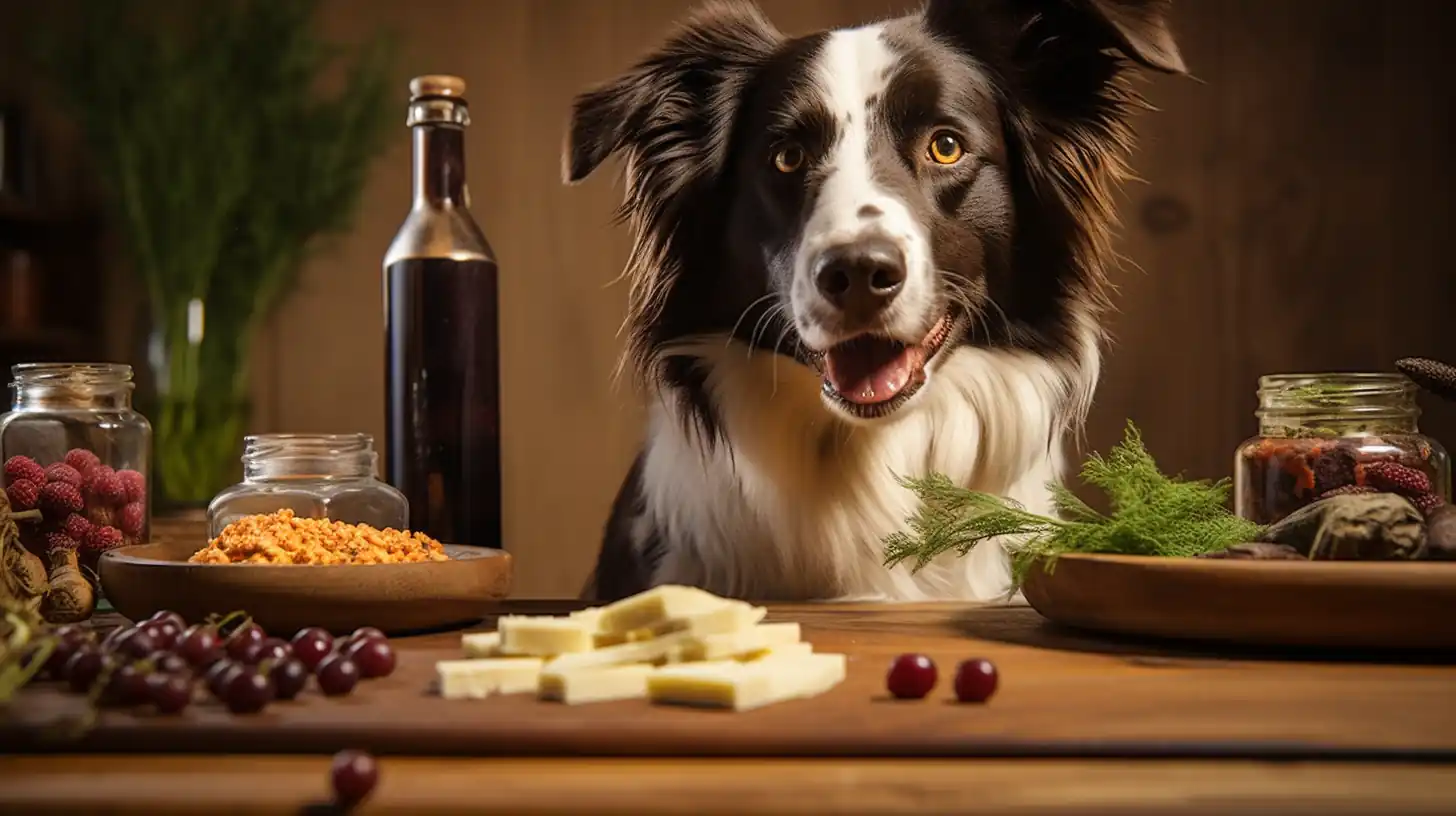Are you wondering if it’s safe to share foods containing xanthan gum with your furry friend? Xanthan gum, a common food additive found in many products, including dog treats and food.
Our blog will dive into the truth about this polysaccharide, helping you understand its effects on canine digestion and overall health. Keep reading to ensure you’re making informed choices for your pup’s diet—let’s get started!
Key Takeaways
- Xanthan gum is a thickener in dog food and treats that helps ingredients stay mixed.
- Most dogs can eat xanthan gum safely, but too much might cause stomach problems or allergies.
- It’s best to check with a vet about how much xanthan gum is okay for your own dog.
What is Xanthan Gum and Why is it Used in Dog Food?
Xanthan gum is a polysaccharide used as a thickening agent in dog food. It is commonly added to pet food to improve texture and consistency, making it more appealing for dogs to eat.
Definition of Xanthan Gum
Xanthan gum is a thickening agent found in many foods, including some dog food. It works to make liquids thicker and creamier. This substance comes from sugar that gets changed by bacteria into something that can mix well with water.
People use xanthan gum because it helps ingredients blend together and stay mixed.
In dog food, xanthan gum does the same thing. It keeps the wet parts and dry parts from separating. This makes sure every bite your dog takes has all the nutrients they need. Plus, it helps create a texture dogs like to eat.
Common uses in dog food
Xanthan gum is a commonly used thickening agent in dog food. It helps to give the food a better texture and consistency, making it more appealing to dogs. Some pet food manufacturers use xanthan gum as an alternative to other additives that may not be suitable for dogs’ digestion.
However, it’s essential for dog owners to ensure that xanthan gum is present in moderate amounts in their pet’s food to prevent potential digestive issues or allergic reactions.
In some cases, xanthan gum can also be utilized in dog treats and wet foods as it acts as a stabilizer and emulsifier. These uses make it valuable for maintaining the quality of the product while also ensuring that it is safe for canine consumption.
Potential Risks and Benefits of Xanthan Gum for Dogs


Consuming too much xanthan gum can potentially lead to stomach upset and digestive issues in dogs. However, moderate consumption may offer benefits such as improved texture and consistency in dog food.
There are controversies surrounding its use, so it’s important to consider the potential risks and benefits before including xanthan gum in your dog’s diet.
Negative effects of consuming too much
Consuming too much xanthan gum can lead to diarrhea in dogs. It is not typically fatal, but large quantities may cause serious gastrointestinal problems. Some dogs might develop allergies if they consume excessive amounts or ingest pure xanthan gum.
While there are debates about its safety, moderate consumption in dog food is generally considered safe.
Now let’s discuss the potential benefits of xanthan gum for dogs.
Potential benefits
Xanthan gum can benefit dogs by helping to thicken and stabilize the texture of dog food, making it more appealing. It can also aid in regulating blood sugar levels and may contribute to better pet digestion when consumed in moderation.
Although there are potential risks, such as diarrhea if ingested excessively, xanthan gum is generally considered safe for dogs and can provide these advantages without causing harm to their health or well-being.
Controversies surrounding its use
While xanthan gum is generally considered safe for dogs in small amounts, controversies surrounding its use stem from concerns about potential allergic reactions and digestive issues.
These controversies have sparked debates among pet owners and veterinarians regarding the safety of this thickening agent in dog food. Some argue that while xanthan gum may not be toxic to dogs, excessive consumption could lead to gastrointestinal problems and allergic reactions, especially in sensitive pets.
Despite being classified as non-hazardous, the ongoing discussions highlight the importance of moderation when incorporating xanthan gum into canine diets to prevent any adverse effects on pet health.
Pet nutrition experts emphasize the necessity of carefully monitoring the amount of xanthan gum present in dog food due to these controversies. The varying perspectives on its safety for canine consumption prompt a more cautious approach toward utilizing this additive in pet products.
Conclusion
In conclusion, dogs can safely consume xanthan gum in moderation without significant harm. It is generally considered a safe food additive for canine consumption. While overconsumption may lead to digestive issues, normal amounts of xanthan gum are unlikely to pose serious risks to dogs.
Pet owners should be mindful of the ingredients in their dog’s food and consult with a veterinarian if they have any concerns about xanthan gum or other additives.
FAQs
1. What is xanthan gum and can dogs eat it?
Xanthan gum is a thickening agent used in dog food. Dogs can eat it in small amounts, but large amounts might cause digestive issues.
2. Is xanthan gum harmful to dogs like some other food additives?
Some food additives are bad for dogs, but xanthan gum is safe if they have just a little bit. It’s not as harmful as xylitol which is very bad for dogs.
3. Can xanthan gum cause allergies in my dog?
Just like people, some dogs could be allergic to xanthan gum. If you see signs that your dog does not feel good after eating something with it inside, talk to the vet.
4. Are there any better thickening agents for my dog’s food than xanthan gum?
Yes, there are safer choices out there like guar gum and carrageenan which might be easier on your pet’s tummy compared to lots of polysaccharides including those similar to what’s found in human foods.
5. How do I know if the amount of xanthan gum in my dog’s diet is safe or not?
Talk with the vet about how much your pup eats and what types of treats or meals he gets every day; moderate consumption usually means that it won’t hurt him.

